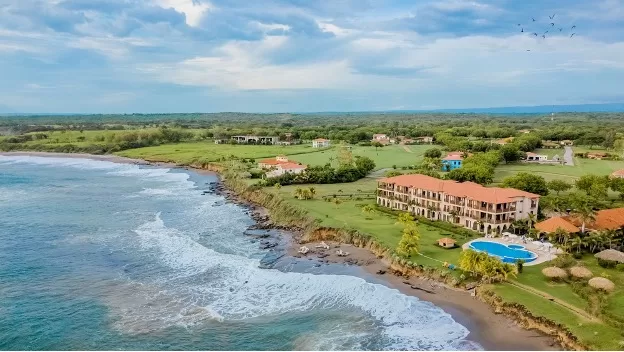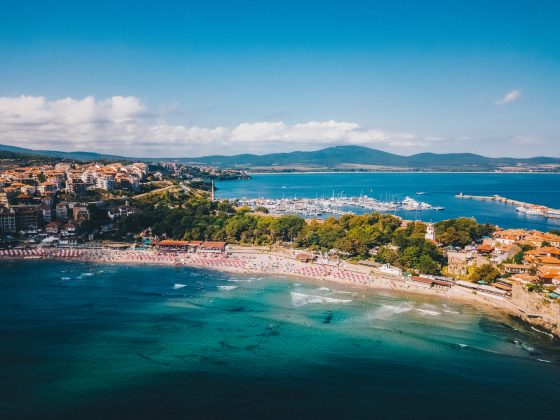As originally published exclusively in “Escape Artist Insider Magazine – May 2023 edition”.
Decades ago, back in the pre-Internet ages, I ran into a quote that stuck with me. I still haven’t been able to locate the original source, but it said that once you leave the bounds of normalcy, all sorts of strange fora and fauna spring up. And boy, have I seen that one proven true.
And the fact is all of us who do things like escape (the title of this magazine is Escape Artist Insiders, after all), or re-arrange our financial affairs, or generally deviate from the approved and applauded script… All of us are leaving the bounds of normalcy. And we will run into strangeness.
Most of that strangeness will be positive or neutral (different isn’t necessarily either bad or good), but Outside is also a place where scams find room to function. If you’re leaving the bounds of normalcy after all, you’re also leaving the enforcements of normalcy. More than that, we’re indirectly insulting normalcy, as the old Roman proverb says:
What a man flees, he also condemns.
That’s the price of being a true individual, of course—of having and applying actual agency—but it does provide a lower-risk environment for the scammers of the world.
I say, “If that’s the price of agency, so be it,” but it’s something we should notice and counteract.
HOW TO TRUST
By escaping, we take the job of trusting—deciding who and how to trust—upon ourselves. It’s not a terribly difficult job (humans did it for hundreds of generations), but it’s a job that has gone out of style over the past few decades.
The present state of Western societies is that “normals”… committed system people and those who follow along with them… don’t know how to trust. They’ve outsourced safety to overlords and lost their traditional safety mechanisms, like family, friends, and neighbors.
Human society, within the system, lost its focus on “us” for comfort and safety and became almost entirely dependent upon “them” for safety. There’s a phone number to call for almost every problem, but no trusted friend to call and no neighbor who will notice and step in.
This has become a huge problem, but I won’t dig into it today; rather, I’ll just say this is the case and because of it, many of us will have to re-learn the art of trust.
But again, if that’s the price of escape, so be it.
Fundamentally, there are two types of trust:
- Trust based on the other’s personal traits and intentions.
- Trust based on the incentive structure surrounding the relationship.
Both types of trust are valid and both can be considered for any interaction. But both are not necessary: If either one is solidly in place, and if the other is not screaming a warning, that’s enough.
Type one is the kind we all learn to some extent: I know I can trust you if we share a close associate: I’m not going to cheat you if you’re very close to my brother or mom or niece. Personal webs of trust used to be crucially important and still are in some cases, as they should be. Personalities and histories are good predictors of future behavior.
And as it turns out, people who trust others (even through trial and error) are far better at recognizing untrustworthy people. And so, trusting more makes us less likely to be scammed. Here’s a composite of passages from a study entitled Trust, gullibility, and social intelligence (Yamagishi, Kikuchi, Kosugi, 1999):
High trusters are more vigilant in dealing with other people in socially uncertain situations… high trusters rather than low trusters are more sensitive to trust-related information and are more accurate in judging the trustworthiness of others… high trusters are more prudent and less gullible than low trusters.
So, practicing trust makes us less likely to be scammed than relying upon the system to keep us safe.
It’s also the case those who refuse to trust miss opportunities. Those who do trust, on the other hand, can see and capitalize upon new opportunities. (Another finding of the study noted above.)
Western civilization, which still lives in many of us, centered upon seeing as individuals, acting as individuals and judging individuals. That was an environment in which trust grew and thrived.
The opposite model, subordination to the collective, centers upon groups: seeing groups, acting as groups, and judging groups. Under this model, the individual is demoted to a subsidiary being, a derivative of the collective.
It’s also good to remember suspicion is an enemy. Like imagined fears, suspicions are infinite. As Thomas Jefferson once wrote, “There is no act, however virtuous, for which ingenuity may not find some bad motive.”
And so, suspicion easily becomes a toxic attitude. Some people hold it as a sort of virtue, but it’s really not: It not only destroys our ability to trust (freezing us in place) but kills the upward swellings of our hearts before they can begin.
THE REALITY
Beyond the necessity of learning to trust and to accept risks rather than imagining we can find pure safety (which we can’t), the fact is most of the losses we’ll take beyond the bounds of normalcy will not be from scammers but from overly hopeful people.
Some of these will be semi-scams, as in “they’ll be glad to pay out if they can, but if not, they’ll take the remaining money and run.”
Probably the majority of them, however, will be well-meaning people who simply can’t deliver. They have a good idea… they desperately want it to work… but they’re simply missing the necessary pieces or have misjudged the situation. In other words, Sincere people, flawed implementation.
Here’s one last thought:
Regardless of all the scams, semi-scams, and wishful thinking, we’re still far better off leaving the collective and living as free moral agents in the universe.
Contact Author
"*" indicates required fields
Stay Ahead on Every Adventure!
Stay updated with the World News on Escape Artist. Get all the travel news, international destinations, expat living, moving abroad, Lifestyle Tips, and digital nomad opportunities. Your next journey starts here—don’t miss a moment! Subscribe Now!










